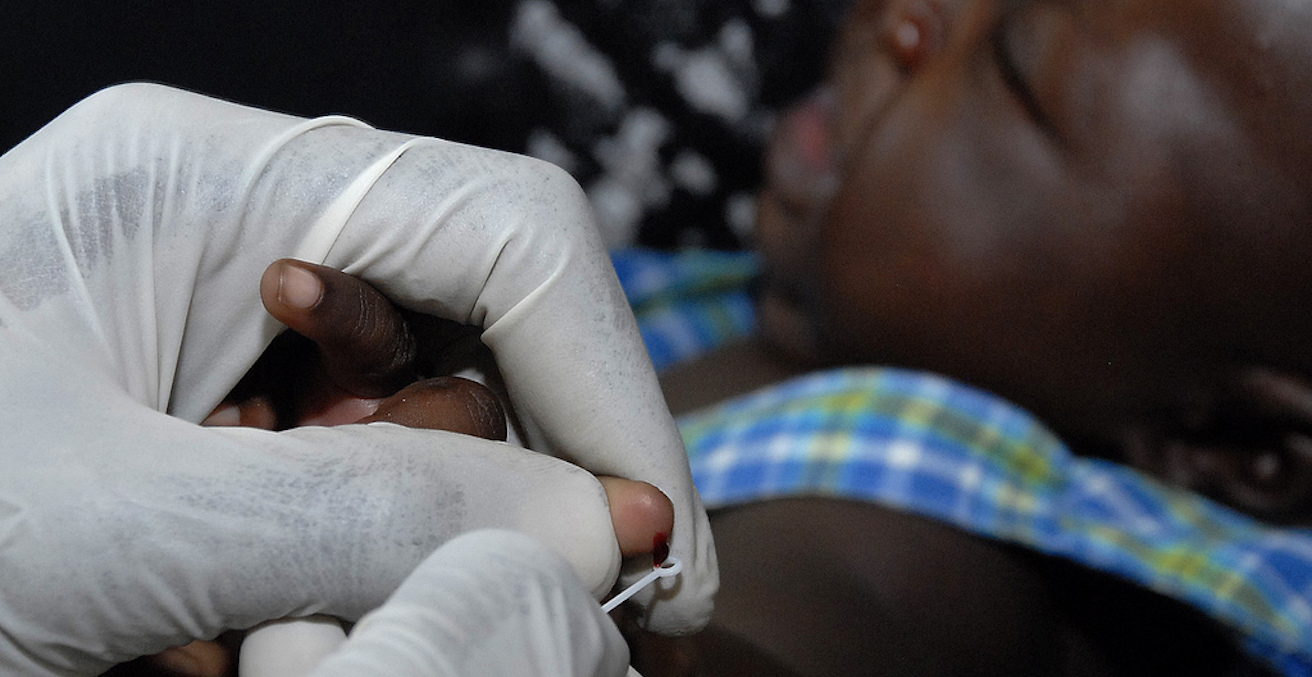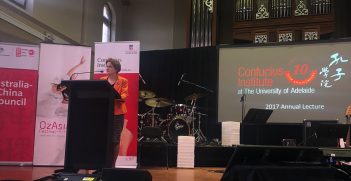The New Pattern in Australian Aid

What do Australia’s recent moves to join Bill Gates in fighting malaria and take up Rihanna’s tweet-challenge to fund girls’ education in some of the world’s poorest areas say about Canberra’s approach to aid?
Since the start of the year, the Turnbull government has made at least two big global health and education related announcements. The nature of both reflect a common pattern that has emerged over the years in how the Australian government engages in global development: namely, strong political and diplomatic leadership in championing development issues in global fora on the one hand, but diminished levels of financial support on the other.
Leadership on eradicating malaria
Last month, the federal government announced that the Minister for Foreign Affairs Julie Bishop will be joining the End Malaria Council. Convened by Bill Gates and the UN Secretary-General’s Special Envoy for Health, Ray Chambers, the council aims to rally political support and smart investments behind a roadmap to reduce malaria cases significantly and eliminate malaria from at least 20 countries by 2025.
Other prominent members of the council include, amongst others, former Liberian President Ellen Johnson Sirleaf, former Tanzanian President Jakaya Kikwete, former News Corp senior executive Peter Chernin and Africa’s richest man, Aliko Dangote of Nigeria.
The foreign minister’s inclusion in the council builds on the leadership the Turnbull-Abbott governments have demonstrated on the issue of malaria within the Indo-Pacific region. In 2013, Australia helped launch, and continues to co-chair, the Asia Pacific Leaders Malaria Alliance (APLMA): a convening of Asian and Pacific heads-of-government formed to accelerate progress against malaria and to eliminate it in the region by 2030.
Julie Bishop’s involvement in global efforts to contain and ultimately eradicate malaria could not have come at a more pivotal time. Launched late last year, the World Health Organisation’s (WHO) annual World Malaria Report showed progress has stalled “after an unprecedented period of success in global malaria control”. While globally malaria deaths fell by 58 per cent between 2000 and 2015, the WHO’s report found that 2016 saw an increase of five million cases on the previous year.
In the Indo-Pacific region there is also the emerging threat posed by mosquitos—carriers of malaria—becoming resistant to certain types of drugs. While the region accounts for a relatively small amount of cases compared to Africa (which accounts for more than 90 per cent of the world’s cases!), there are concerns that such resistance could soon spread.
Bill Gates at least is hoping that Julie Bishop’s appointment to the council will be “an opportunity to re-energise” regional efforts to contain malaria. And certainly the Australian government has so far shown it is more than willing to take on the challenge.
Later this year, Australia will host the the first World Malaria Congress in Melbourne. Australia has also been one of a number of countries expressing strong support for malaria to be on the agenda of this year’s Commonwealth Heads of Government Meeting (CHOGM), which will take place in London in April.
Reduced funding for global education
The increased political support for eradicating malaria contrasts greatly with the decline in financial support for global education.
Earlier this month, leaders from governments, NGOs and businesses convened in Senegal for a special conference on education co-hosted by Senegalese President Macky Sall and French President Emmanuel Macron. The aim of the conference was to replenish the Global Partnership for Education (GPE), the only multilateral organisation devoted entirely to education, to enable it to support 870 million children across 89 developing countries over the next three years.
Australia was one of the original key donors to the GPE. At its first replenishment conference in 2011, Australia—which at the time proudly declared education to be the flagship sector of its aid program—announced AUD$270 million. It was the second highest pledge made after the UK.
Fast forward to last Friday’s conference where Australia announced AUD$90 million. Despite the call to action being greater than in 2011, Australia chose to reduce its overall support while many others—France, Canada, the UAE, Norway, the European Commission, the UK and Denmark—pledged more.
Australia was one of the few existing GPE donors to reduce its overall support at a time when countries were being asked to raise their overall ambition. The GPE was hoping to raise USD$3.1 billion (AUD$3.93 billion), but only USD$2.3 billion was pledged in Senegal. Unless countries like Australia, as well as other G20 countries like Germany and Italy, do more to prioritise global education, we risk a whole generation of young people being left without a quality education.
There is of course still time for Australia to renew its leadership on education. At the conference in Senegal, President Macri of Argentina reiterated via video message that education would be a top priority for his G20 presidency this year. The G20 Leaders Summit presents an ideal moment for a generous new announcement of support from Australia.
Ultimately, though, the GPE is yet another casualty of the Turnbull government’s drastically scaled-back aid program, now just 0.22 per cent of gross national income, well short of the UN’s target of 0.7 per cent. To have increased spending for the GPE in this environment, without reversing the collapse in support for aid, would have meant cuts to vital programs in other areas.
Credit should be given where credit is due. To say the Turnbull government has not shown any leadership on international development in its term in office would be an unfair misrepresentation. Bishop’s appointment to the End Malaria Council is indeed the latest example of where the government has sought to convene political support around a key issue. Past examples of such leadership include elevating the eradication of diseases like polio on both the CHOGM and polio agenda, galvanising attention for water and sanitation and ensuring through its Human Rights Council bid that marginalised groups are not left behind.
Nonetheless, while international development is not and should never be just about money, the Turnbull government sooner or later will need to grapple with the fact that under its watch aid levels have fallen to their lowest ever. And, unless reversed, the impact of these cuts on critical development programs will overshadow any amount of goodwill generated by diplomatic agenda-setting.
Michael Sheldrick is the global director of policy and advocacy with Global Citizen, an Australian-grown international advocacy group based in New York.
This article is published under a Creative Commons Licence and may be republished with attribution.





